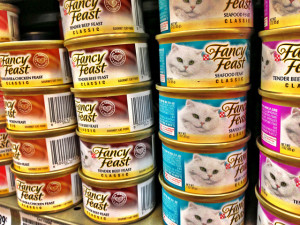Nestle Purina has been accused of profiting from slave labor, after reports emerge that it makes its cat food ‘Fancy Feast’ with fish caught by illegal operations in Thailand, reports CourtHouse News.
The lawsuit filed against them on behalf of consumers, refers to a July 27th New York Times report “Sea Slaves: The Human Misery that Feeds Pets and Livestock,” which details the traumas of men and boys who are trafficked and sold into slavery in Southeast Asia. They are apparently set to work on fishing boats for little or no pay, for up to 20 hours a day, and face violence if they don’t comply.

Image credit: Don DeBold (Flickr)
The four plaintiffs argue that if consumers were aware of the retail giant’s fish source, they would not buy Fancy Feast.
The lawsuit states:
“In summary, although Nestle recognizes that the use of slave labor in its supply chain is wrong and its corporate business principles explicitly forbid slave labor by its suppliers, it materially omits to disclose to consumers purchasing Fancy Feast the likelihood that slave labor was used to source the seafood making up the product.”
The consumers lawyer Steve Berman told Bloomberg news service that Nestle “effectively tricked millions of consumers into supporting and encouraging slave labor on floating prisons.”
Foreign business license lawyers in Thailand Chaninat and Leeds have decades of experience helping foreigners successfully run businesses in Thailand.
Nestle say they are working with human rights group Verite “to identify where and why forced labor and human rights abuses may be taking place.”
Nestle Purina is the largest pet food company in the US, controlling around a third of the market.
This comes in the wake of news that retail giant Costco are also using alleged slave labor in South East Asian waters, and also that Thai fishing standards are considered not good enough.
See more on this story here and here.

Comments on this entry are closed.